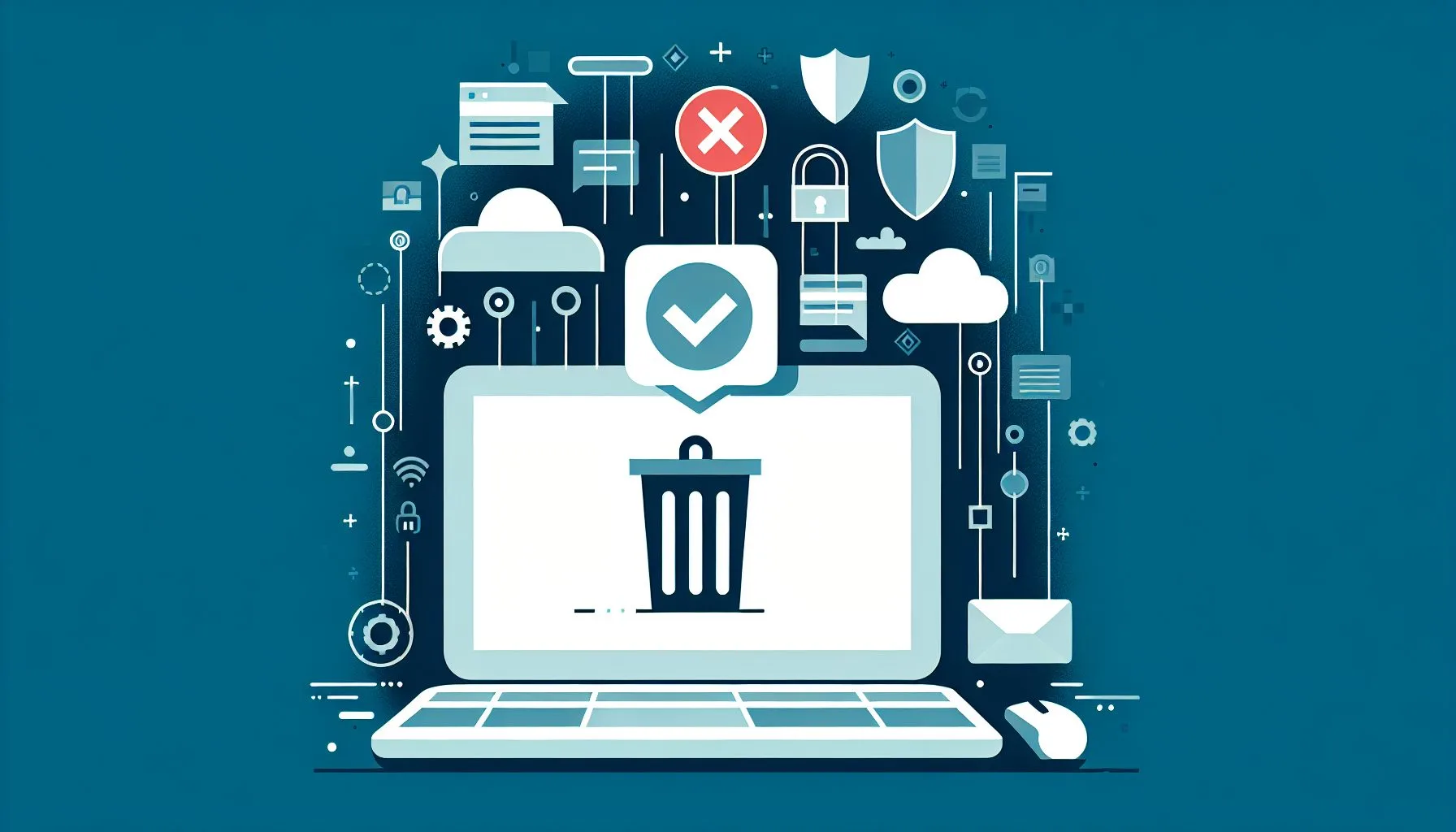Understanding how to delete someone else’s social media account permanently involves more than just technical steps; it requires awareness of ownership rights, consent, emotional sensitivity, and legal frameworks. This guide explores these dimensions carefully to help you navigate account deletion responsibly and respectfully.
Interesting Facts
It’s a question that often surfaces in conversations about social media, privacy, and the digital lives we lead: “How do I delete her account permanently?” Whether the “her” in question is a family member, a partner, or someone else you care deeply about, this topic touches on sensitive themes—autonomy, consent, and the security of personal digital spaces.
Before jumping into the practical steps, particularly with Twitter as a common example, it’s crucial to stop and think about the bigger picture. Deleting someone else’s account without their explicit permission is not only frowned upon by major platforms but also raises serious ethical and legal concerns. The internet is, after all, personal territory. Every user should have the exclusive right to manage their digital footprint. For more details on how social media platforms enforce this, check out our services page.
Understanding Account Deletion: Ownership and Consent
Picture your social media account as your own private corner in the vast digital world. You decide what to share, when, and how. This ownership is not merely symbolic—it’s enforced rigorously through passwords, authentication protocols, and privacy settings that platforms provide to protect users. At its heart lies consent. Without permission, no one else should be able to erase your piece of that digital landscape.
When someone asks, “How do I delete her account permanently?” the question often stems from a desire to help. Maybe a loved one has passed away, and you want to preserve their memory online respectfully or assist in closing that chapter. Maybe someone close is having a tough time and wishes to step away from social media for their mental wellbeing. Or maybe privacy and security concerns spark the impulse to delete an account. Whatever the reason, the process—and the conversations surrounding it—demand sensitivity.
Why You Can’t Delete Someone Else’s Account Without Permission
Most social media platforms—including Twitter, Facebook, Instagram, and more—require the account owner to initiate deletion themselves. This isn’t just a security formality; it’s a vital safeguard against unauthorized access, hacking, or digital harm. Imagine the chaos if anyone could delete any account with ease—trust and order in online communities would collapse.
Specifically, with Twitter, deleting an account follows a clear, user-centered process:
- Login with the user’s credentials. This confirms identity and ownership.
- Navigate to Account Settings. Typically found under profile menus.
- Select ‘Deactivate My Account’. On Twitter, deactivation starts a 30-day waiting period before permanent deletion.
- Follow on-screen instructions and confirm. The waiting period allows users to reconsider and reactivate if needed.
Because these steps demand the account password, deleting an account without the owner’s permission is both practically difficult and legally questionable. Platforms explicitly prohibit sharing login details or unauthorized deletion attempts, precisely to prevent misuse. Learn more about the process in this helpful CNET guide.
Get Professional Help with Social Media Account Management
What If You Don’t Have Access? Alternatives and Support
What happens if the person whose account you want to delete can’t manage it themselves? Perhaps they’re incapacitated, missing, or have passed away. Fortunately, social media companies recognize these delicate situations and offer specific options:
- Memorialization or Special Requests. Facebook, for example, allows accounts of deceased users to be memorialized, creating a digital tribute rather than deleting the profile entirely.
- Submitting Official Documentation. Twitter and others let close family members or legal representatives file requests for removal or memorialization by providing valid proof of death or legal authority.
- Data Access Rights Under Laws. In many countries, regulations like the European Union’s GDPR grant individuals—and sometimes their legal representatives—rights over managing digital data after death or incapacitation.
These processes usually require patience and careful communication with platform support teams, and often some form of legal paperwork. They’re designed deliberately to prevent misuse but also to uphold dignity and respect when dealing with difficult circumstances. See official Twitter instructions on deleting accounts in such situations here.
Protecting Your Own Account and Privacy
If you simply want to delete your own account permanently—perhaps after reflecting on what your online presence means to you—it helps to understand the specifics for each platform.
With Twitter, deactivation starts a 30-day grace period. During these days, logging back in restores the account; if untouched, the data and profile are typically erased permanently after this period. Keep in mind that once deleted, recovering the username or data is nearly impossible.
Other platforms differ: some offer longer grace periods, options to download your data, or alternative ways to pause your presence, such as temporarily deactivating without deletion. It’s always wise to check the most recent guidance from official help centers before proceeding. Our help blog also shares useful tips on managing social media accounts.
Emotional Dimensions: When Deleting Feels Like Saying Goodbye
Deleting an account—whether your own or someone else’s—is rarely just technical. There’s often an emotional layer. An account can feel like a digital photo album, a diary, or a timeline filled with memories: photos, conversations, milestones lived and shared online. Removing it can feel like wiping away part of a person’s story, a presence frozen in time.
If you’re helping someone step back from social media for their wellbeing, starting with an open, honest conversation matters immensely. Encourage downloading any data or keepsakes they want to hold onto. Talk through their wishes and respect their timing and feelings. Rushing or forcing the process can aggravate distress.
When dealing with the digital legacy of someone who’s died, sometimes memorializing the account or archiving the content provides comfort. It creates a virtual space for friends and family to recollect and share memories, keeping that person’s online presence alive in a gentle way.
When Deletion Isn’t the Only Option
Deleting an account isn’t the sole way to manage digital presence; alternatives often achieve similar benefits without permanent loss.
For instance, adjusting privacy settings is powerful. On Twitter, you can “protect” your tweets so they’re visible only to approved followers, reducing exposure while keeping the account intact. Muting or unfollowing accounts helps curb unwanted interactions. Temporarily logging out or taking a break can restore peace without drastic steps.
If your urge to delete someone else’s account comes from genuine concern, but access or permission isn’t available, consider other ways to support. Perhaps you can help them change who sees their posts, suggest a digital detox, or simply be there while they navigate their challenges online. You can explore how communities discuss these concerns on platforms like Reddit.
Respecting Boundaries in the Digital Age
It’s tempting to try and “fix” things by controlling someone else’s online presence, especially when feelings run high. But respecting personal boundaries and autonomy is fundamental, even when it’s difficult.
Account deletion is a powerful, often irreversible action: it erases archives of conversations, photos, and a history of online interaction. It shapes how someone is remembered—or forgotten. Treat this as an act of care and consent, not control.
When you hear someone ask, “How do I delete her account permanently?” remember a simple truth: only the account holder—or someone with explicit legal authorization—can do it. In such delicate situations, patience and empathy go a long way.
Navigating Digital Legacy: Beyond Deletion
In recent years, the growing awareness of digital legacy—the online presence people leave behind—has led to new features and policies on many platforms. This area goes beyond deletion, focusing on how accounts and their digital footprints are managed after an individual can no longer do so themselves.
Facebook’s “legacy contact” option lets a user designate someone to manage portions of their account after death. Google offers “inactive account manager,” allowing users to specify who can access their data. These tools highlight a shift in how we perceive digital identities—not just as ephemeral moments but as parts of our extended legacy.
Understanding these options can provide peace of mind for both account owners and their loved ones, offering a framework for respectful, planned management of online histories.
The Role of Privacy Laws and Their Impact
Legal frameworks around the world increasingly touch on digital rights, data protection, and posthumous management of online accounts.
The European Union’s GDPR, for example, empowers people with strong controls over their personal data, including rights that can, in part, be exercised by family members after death. Similarly, in some U.S. states, laws exist that regulate access to digital assets of deceased users.
These protections reinforce that digital accounts are not mere commodities—they are extensions of personal identity, deserving legal protection and ethical respect. Knowing your local laws can clarify what’s possible and guide your actions. Our article on privacy policies provides further insight.
Tips for Managing Social Media Accounts with Care
If you or someone you know is thinking about deleting an account or adjusting digital presence, here are practical tips to keep in mind:
- Backup important data: Before deletion, download photos, contacts, messages—anything you want to keep.
- Use platform tools: Explore built-in options like account deactivation, privacy controls, or legacy contacts.
- Communicate openly: If helping someone else, talk through their wishes clearly and patiently.
- Be mindful of consequences: Know that deletion is often permanent and may impact connected services or contacts.
- Seek help if needed: If the situation involves legal matters or death, don’t hesitate to contact platform support or legal professionals.
The internet weaves deeply into how we share stories, maintain relationships, and express identity. Deleting an account marks an ending—but it also opens a space for new beginnings. Whether it’s your own account or that of someone you care about, the process requires not just technical know-how but kindness, respect, and understanding.
If you find yourself facing these questions, may you navigate with clarity and peace. Behind every username and profile picture is a person with a story worth honoring—and every decision around account deletion is a chapter in that story.
Can I delete someone else’s account without permission?
No, deleting someone else’s social media account without their consent is generally not allowed due to legal, ethical, and platform policies. Only the account owner or authorized individuals can delete an account.
What should I do if the account owner is deceased?
If the account owner is deceased, most platforms offer options like memorialization or account removal through legal documentation submitted by family members or authorized representatives.
What steps are involved in deleting my own Twitter account?
To delete your Twitter account, log in with your credentials, go to Account Settings, select ‘Deactivate My Account’, and follow the prompts. There is a 30-day grace period before permanent deletion occurs.
Deleting an account permanently can feel like a big step, but with respect for privacy and proper procedures, it becomes manageable. Remember, only the rightful owner can do it, so tread kindly and keep empathy in your heart. Until next time, may your digital journeys be safe and drama-free!

